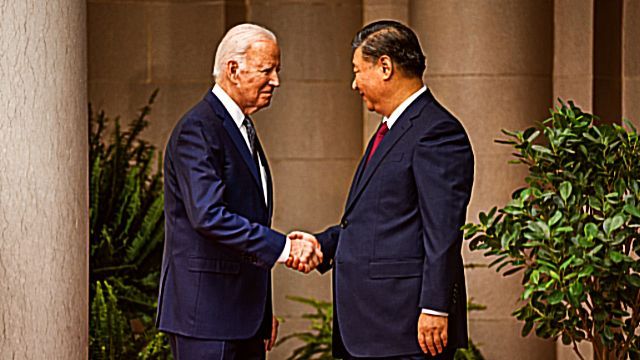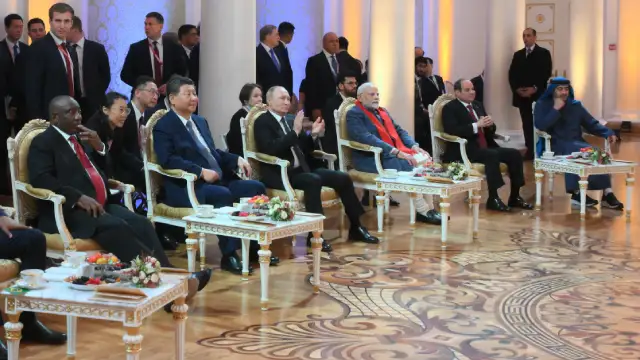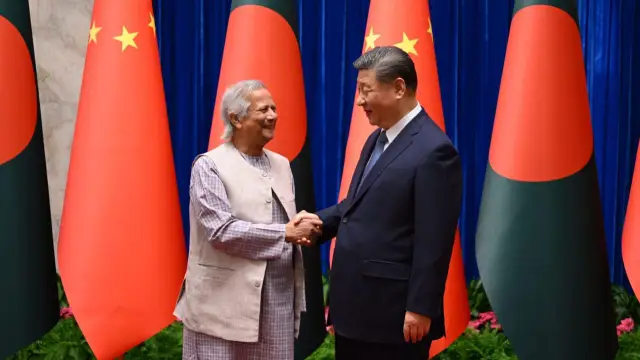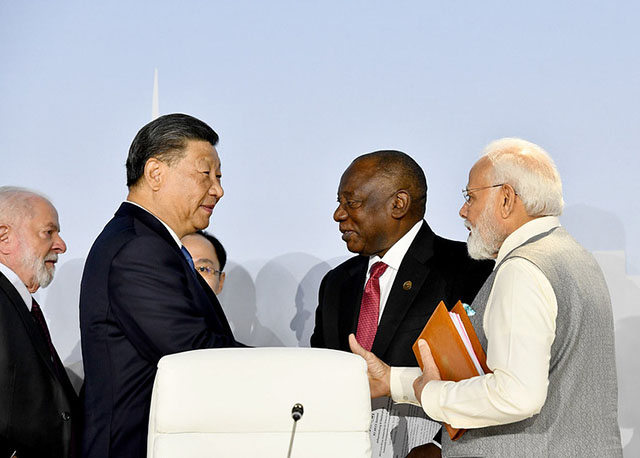While the Xi-Biden summit in San Francisco has raised hopes of breaking the ice in the China-US bilateral relations, however, the attitude and the record of the US raise questions on the longevity of such talks.
The meeting between Chinese President Xi Jinping and his US counterpart Joe Biden at the Filoli Estate in San Francisco, on November 15th, has grabbed international headlines. The Chinese and the US side portrayed a bright picture of the Xi-Biden summit in San Francisco.
“It was a fruitful meeting with over 20 common understandings in political, diplomatic, cultural and people-to-people exchanges, global governance, military, security and other fields. These important common understandings and deliverables further attest to the wide-ranging common interests shared by China and the US. They also prove that mutual benefit is the defining feature of China-US relations and dialogue and cooperation is the only right choice for both sides”, Chinese Ministry of Foreign Affairs Spokesperson Mao Ning told the press.
However, the Xi-Biden summit in San Francisco apparently failed to break the logjam in the China-US bilateral relations due to the obstinate Sinophobia dominating the attitude of the US government.
The different outlooks
The US side emphasised that it would take whatever measures are required to secure its interests and those of its allies during the Xi-Biden summit.
“President Biden emphasized that the United States and China are in competition, noting that the United States would continue to invest in the sources of American strength at home and align with allies and partners around the world. He stressed that the United States would always stand up for its interests, its values, and its allies and partners. He reiterated that the world expects the United States and China to manage competition responsibly to prevent it from veering into conflict, confrontation, or a new Cold War (sic).” – the White House said in a statement.
Although Biden spoke about the American interests, he didn’t clarify what they are and how the US administration wants the other governments to react whose interests, national sovereignty, security or economy may be threatened by the US interests.
Biden asserted that the US would stand up with its allies and partners but didn’t clarify what it would do if its partners stood on the wrong side, or if they had violated international laws.
An illustration of the US’s solidarity with its “allies and partners” can be seen in Washington DC’s unequivocal support of the Israeli government’s ongoing genocide in occupied Palestinian territories.
The ambiguity in Biden’s comment leaves enough room for speculation, as it indicates that the US will engage in bitter hostilities with anyone from whom it faces any threat to its undefined “interests” in any part of the world. This outlook itself is hegemonistic and exhibits the US’s non-committal attitude towards peaceful coexistence.
Countering Biden’s hegemonistic rhetoric, Chinese President Xi said that there are two options in the current era, one where the US and China enhance their cooperation and join hands to meet global challenges, and the other is to resort to a zero-sum game and engage in rivalry jeopardising global stability.
“China and the United States are faced with two options in the era of global transformations unseen in a century: One is to enhance solidarity and cooperation and join hands to meet global challenges and promote global security and prosperity; and the other is to cling to the zero-sum mentality, provoke rivalry and confrontation, and drive the world toward turmoil and division. The two choices point to two different directions that will decide the future of humanity and Planet Earth. The China-U.S. relationship, which is the most important bilateral relationship in the world, should be perceived and envisioned in this broad context. For China and the United States, turning their back on each other is not an option. It is unrealistic for one side to remodel the other. And conflict and confrontation has unbearable consequences for both sides. Major-country competition cannot solve the problems facing China and the United States or the world. The world is big enough to accommodate both countries, and one country’s success is an opportunity for the other (sic).” – the Chinese Ministry of Foreign Affairs informed in a statement.
The outcome of the Xi-Biden summit couldn’t have been better with the US’s unjust preconditions, however, Biden has reportedly reaffirmed a few of the US’s major commitments to China.
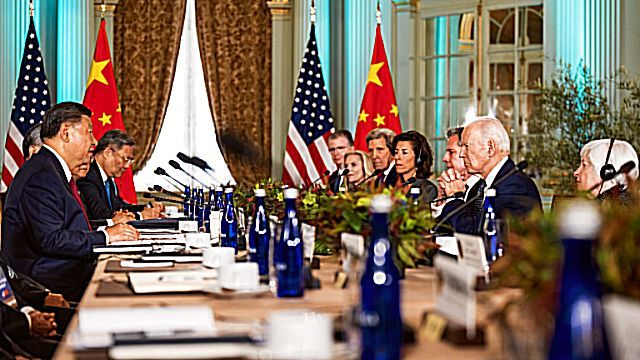
The major outcomes of the Xi-Biden summit
The major outcomes of the Xi-Biden summit, at least what appears on paper, show that the Chinese side has emerged as the winner, as Washington DC has conceded to all major demands of Beijing.
The US reaffirmed the five commitments that Biden made at Bali in November 2022, during the sidelines of the G20 Summit.
These five commitments assert that the US doesn’t:
- Seek a new Cold War.
- Seek to change China’s system.
- Seek to revitalise its anti-China alliances.
- Support the so-called “Taiwan independence”.
- Seek a conflict with China.
During the Xi-Biden summit, the US claimed that it still adheres to the “One China Policy” and doesn’t seek to contain or suppress China’s development and progress.
The US reaffirmed that it wants to increase bilateral engagement with China, welcomes dialogue between different government agencies, and wants to grow its economic and trade relations with China and collaborate in important areas such as fighting climate change, counter-narcotics and artificial intelligence (AI).
Both sides stressed the importance of all countries treating each other with respect and finding a way to peaceful coexistence, maintaining open communication lines, preventing conflict, upholding the UN Charter, cooperating in areas of shared interest, and responsibly managing competitive aspects of the relationship.
During the Xi-Biden summit, both leaders agreed to resume high-level military-to-military communication, the “China-U.S. Defense Policy Coordination Talks”, and the “China-U.S. Military Maritime Consultative Agreement” meetings, and to conduct telephone conversations between theatre commanders based on equality and respect.
Both leaders also agreed to commit to work toward a significant further increase in scheduled passenger flights early next year; and expand educational, student, youth, cultural, sports and business exchanges between the two countries.
The underlying problems in the China-US relationship
Although the Xi-Biden summit delivered a positive message, the underlying problems in China-US relations can provide several roadblocks to improving ties. One of them is the US’s zero-sum game mentality, driven by its ulterior hegemonistic quest, which results in provocations and muscle-flexing. It’s unlikely that the US would change that attitude regarding China when it has officially designated it as a global rival.
While the US said that it would refrain from revitalising the anti-China alliances, it didn’t mention dissolving the QUAD axis, which is one of the principal anti-China military cliques in the world. If the established anti-China ententes aren’t dissolved, then there can be no lasting guarantee for peace and stability in Asia.
Moreover, on the one hand, the Xi-Biden summit stressed the need to develop bilateral economic relations, on the other hand, the US remains non-committal about implementing a fair play policy in bilateral trade and commerce.
Following the footsteps of his predecessor Donald Trump, Biden has retained additional tariffs placed on several Chinese exports and added newer restrictions that prohibit the export of advanced semiconductors or the equipment to make them to China citing security concerns.
This has deteriorated the economic relations between the two countries, which used to be each other’s largest trading partners. As a result, the US is now trading more with its immediate neighbours– Canada and Mexico, while China is now trading more with Southeast Asian countries.
China’s Minister of Commerce Wang Wentao highlighted these during his meeting with US Commerce Secretary Gina Raimondo on Thursday, November 16th. “Wang Wentao expressed concern about the final rules of the US semiconductor export controls against China, sanctions against Chinese companies, two-way investment restrictions, and Section 301 tariffs”, the Chinese Commerce Ministry stated.
The bilateral trade between China and the US hit a record of $690b in 2022, as the demand for Chinese consumer goods rose in the US, while the demand for American farm products and energy grew in China. However, in 2023, the bilateral trade until September has been down by $104b or 19% vis-à-vis the first nine months of 2022, according to the US Census Bureau data.
Apart from these, the US is a vehement opponent of the Chinese Belt Road Initiative (BRI), which is an ambitious multi-continental infrastructural project of Xi. In its active opposition to the BRI, the US has entered the so-called “Indo-Pacific” war theatre and is also looking to create hurdles for China in the Middle East.
The US also has problems with the China-Russia proximity, their advocacy for a multipolar world order and the promotion of multilateral platforms like the Shanghai Cooperation Organization (SCO) or the BRICS. As many of the former US allies have shown interest in these organisations, Washington DC has been considering them as threats to its waning hegemony.
There are also sharp differences between the two sides on issues like Russia’s special military operations in Ukraine and the Israeli aggression in Palestine, where China’s stand for lasting peace contradicts the US’s stand.
Can the US-China relations stabilise following the Xi-Biden summit?
The US side exhibited special interest in the Xi-Biden summit and wanted to project it as something separate from the 30th APEC Economic Leaders’ Meeting in San Francisco, for which the Chinese president visited the US. The Biden administration ensured that the meeting takes place in the Filoli Estate, which is away from the venue of the APEC Summit.
However, soon after what both sides called a very engaging discussion on the roadblocks to a normal bilateral relationship between China and the US, Biden went haywire, exhibiting his senility by confirming that he still believes that the Chinese president is a dictator.
When he was asked during a solo press conference whether he still believes—according to his earlier accusation levelled against Xi—the Chinese president is a “dictator”, he responded in the affirmative, much to the dismay of his Secretary of State Antony Blinken who flinched.
“Look, he is. He’s a dictator in the sense that he’s a guy who runs a country that is a communist country that’s based on a form of government totally different than ours”, Biden answered.
The Chinese Ministry of Foreign Affairs criticised Biden for his comment. “This statement is extremely wrong and irresponsible political manipulation”, Ministry Spokesperson Mao said regarding Biden calling Xi a dictator.
“It should be pointed out that there will always be some people with ulterior motives who attempt to incite and damage US-China relations, they are doomed to fail”, she added, without clarifying who are those “some people”.
While the Xi-Biden summit took place after a lot of backchannel diplomatic endeavours, which were initiated by Blinken, who had visited China to ensure that tensions don’t escalate despite Washington DC’s incessant ranting, Biden’s irresponsible comment, has shown that there are less scopes of stronger bilateral relations between the countries. It showed that the US side will continue to vilify China and its leaders and remain steadfast in their provocative activities.
The impossibilities are larger than the possibilities
For the US, normalisation of ties with China will mean the latter giving up its sovereignty and surrendering much of its legitimate territories to the US or its allies in the region. The Chinese side won’t allow that to happen, especially when Xi has underlined national rejuvenation as a goal of the ruling communist party and the country.
Apart from the contentious Taiwan issue, China won’t give up its rightful claims on Hong Kong; it won’t let the US dominate the South China Sea and it won’t gang up with the West against Russia, with which it has deepened strategic ties and improved bilateral trading. The Chinese won’t give up the BRI or its need to develop maritime security to enhance the coverage of its cargo.
Hence, even after the Xi-Biden summit, the impossibility of achieving better China-US ties far outweighs the possibilities. The US president’s attitude, comments and the US’s clever manoeuvring may further destabilise the relationship between the two countries. How much Xi would like to walk alongside warmongers like Biden remains an important parameter to gauge the success of the Xi-Biden summit in San Francisco.
Tanmoy Ibrahim is a journalist who writes extensively on geopolitics and political economy. During his two-decade-long career, he has written extensively on the economic aspects behind the rise of the ultra-right forces and communalism in India. A life-long student of the dynamic praxis of geopolitics, he emphasises the need for a multipolar world with multilateral ties for a peaceful future for all.

